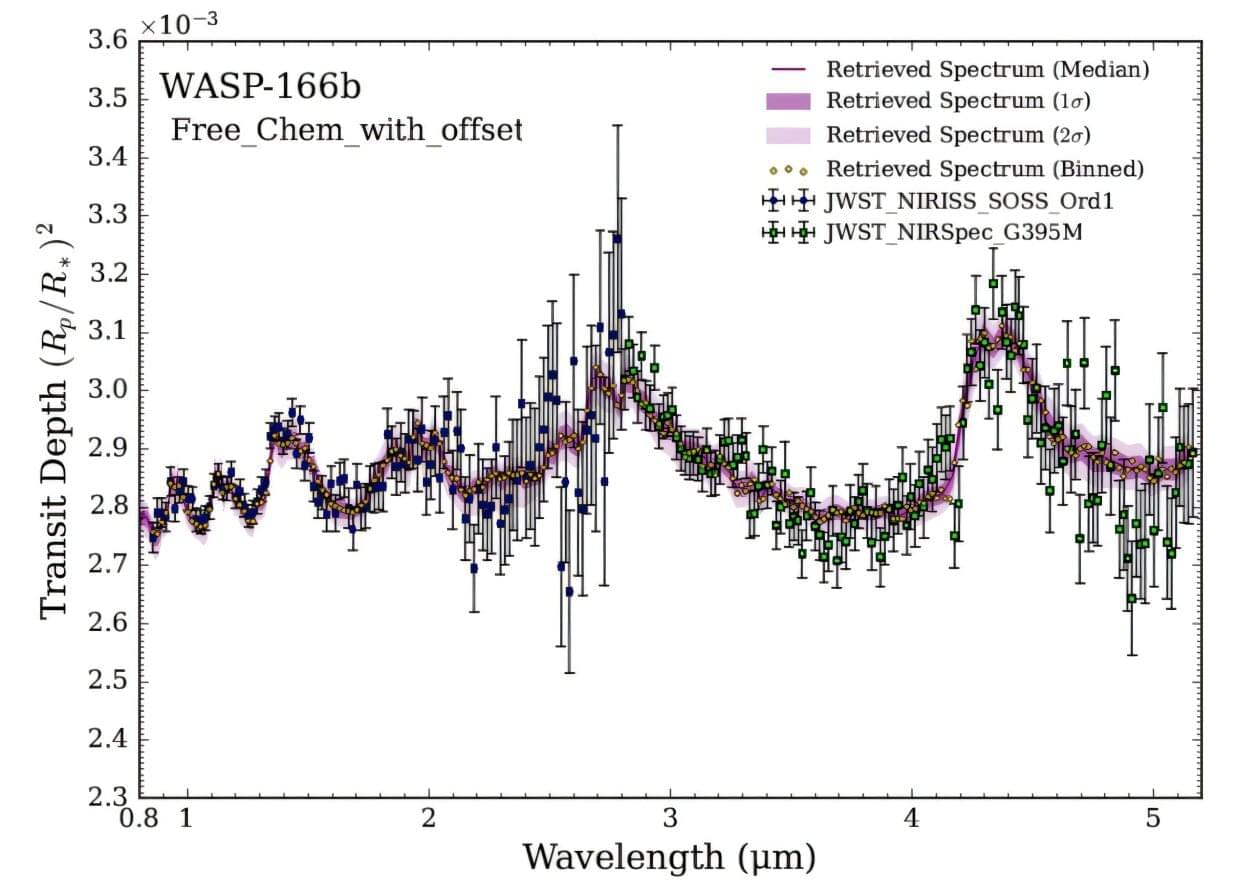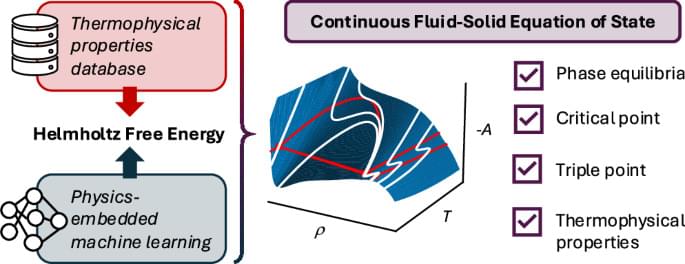Using the James Webb Space Telescope (JWST), astronomers have characterized the atmosphere of a hot super-Neptune exoplanet designated WASP-166 b. As a result, they found that the atmosphere of this alien world contains water and carbon dioxide. Their findings were reported Dec. 31 on the arXiv preprint server.
WASP-166 b is about seven times larger and 32 times more massive than the Earth. It orbits its host star every 5.44 days, at a distance of approximately 0.067 AU from it. The planet is relatively hot as its equilibrium temperature is estimated to be 1,270 K. The parameters of WASP-166 make it a representative of the so-called hot Neptune desert—a region of parameter space at high insolation fluxes and intermediate planet radii that is very sparsely populated.
The parent star WASP-166, which is located some 368 light years away, has a spectral type of F9V, and is about 20% larger and more massive than the sun. The star has an effective temperature of 6,050 K, metallicity at a level of 0.19 dex, and its age is estimated to be 2.1 billion years.







